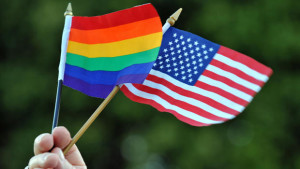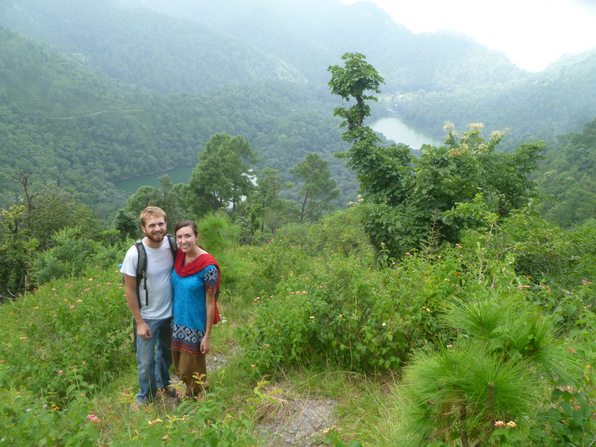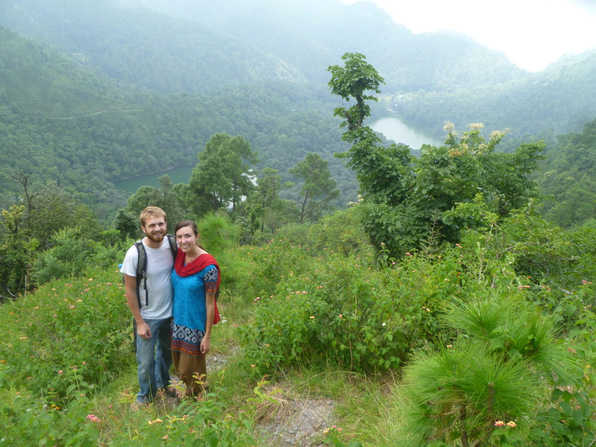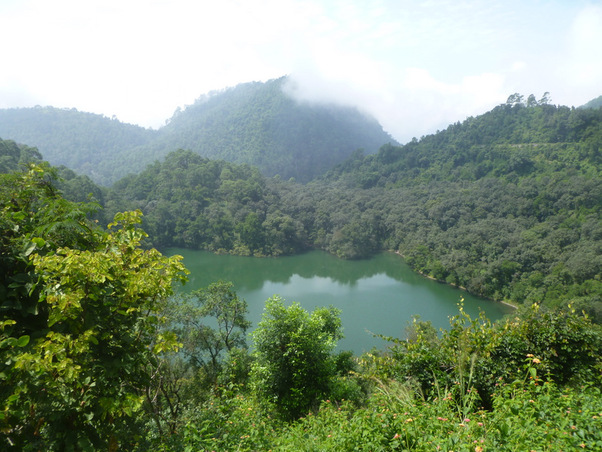Over the weekend, Andy and I celebrated our five year wedding anniversary. We were out in the woods on a small island off the coast of BC, building small cabins that will serve as “hermitages” for people on silent retreat who need a place for deep solitude and prayer. It felt good to do some manual labor, to see tangible progress as we worked, and to feel good and tired by the end of the day, in a sore-muscle rather than a screenburned-eyes or overwrought-mind sort of way. Our motley construction crew was made up of people from all over the place, some in their teens and some in their fifties, and it was fun hanging out with people of all ages—that doesn’t happen very often outside of family reunions, and intergenerational friendship is one of the things Andy and I had enjoyed so much about living in India. After spending a long Saturday on the work site, we enjoyed a brisk swim at an isolated beach. There were Canadian geese sitting on the water around us, so it definitely stretched my idea of what summer at the beach looks like!
Apparently while we were hammering away in the woods and sleeping in rustic cabins without electricity and running water, a lot was happening back in civilization, and particularly in the country of my birth.
There was the courageous act of protest by a brave woman named Bree Newsome, who scaled the flag pole in front of the state capitol building in South Carolina to take down the symbol of white supremacy and racial violence that had flown over the seat of the state government there for more than a hundred and fifty years. Civil disobedience is intended to show the moral absurdity of laws through breaking them and willingly suffering the consequences of one’s actions. Bree’s action did exactly that: South Carolina police (including a black officer) were forced to arrest a peaceful black woman, who quoted scripture aloud as they handcuffed her, for the “crime” of removing a banner under which black Americans have been enslaved, raped, murdered, beaten, intimidated, and systematically oppressed for over a century. No scene could have more pointedly demonstrated the righteousness of her cause: the law was against her, but justice was certainly on her side. She now faces up to 3 years in prison and a fine of up to $5000 for her heroic act. All of us who follow Jesus can learn from this woman’s sacrificial example.
Also over the weekend, President Obama delivered a eulogy for Clementa Pinkney, a black pastor who was among the slain in Charleston on June 17. I don’t know what opinion you hold of Obama as a person, or a politician—I can’t think of him without remembering the countless drone attacks he has authorized against innocent civilians in the Middle East—but his eulogy for Pinkney is one of the best sermons I have ever heard, and is probably THE most powerful speech I have ever heard from a head of state. Perhaps the fact that, as President, he has made important public decisions with which nearly every one of us has disagreed at some point or another makes him exactly the kind of flawed, imperfect human being who can speak with authority about grace. Seriously, if you haven’t yet listened to the speech, please, please do. It is a heartfelt lament of the ways that we have deeply wounded one another in America, an inspiring reminder of the resilience and love that have continued to grow even in the midst of violence and oppression, and an eloquent call for us to move forward together as a nation towards forgiveness and justice, extending God’s grace to one another in every facet of our lives.
“Justice grows out of recognition of ourselves in each other,” he remarks at one point. “My liberty depends on you being free, too.” One can hear in these words the echoes of both Jesus’ call to love our enemies, recognizing our neighbor-hood with them, and MLK Jr.’s assertion that injustice anywhere is a threat to justice everywhere.
The other big national news of the weekend was the legalization of same-sex marriage across the United States. The reactions of many American Christians have already become an embarrassing adventure in missing the point, but I still hold out hope that we as a Church will be able to let go of our fearful siege mentality and recognize this opportunity to love and extend grace to people who may not share our sexual orientation or our theology. I’ve always been confused by the political kerfuffle over trying to legislate a Christian lifestyle into the laws of the state, since God has never called the Church to control the government. We have been given the task of modeling the Kingdom in our own lives, creating a community that images God’s hospitality and love, and inviting others into freely-chosen, loving relationship with God.
Using legal means to force non-Christians into choices and behaviors that Christians have specifically chosen as disciples of Christ seems not only pointless, but controlling and counterproductive to our true mission in the world. If we send the message to the people around us that we are more concerned about policing their sex lives than about caring for them as people, then we’ve not just lost the “culture wars”—we’ve lost the respect and trust that would have laid the foundations for any relationship with people outside the church to grow. We’ve lost our credibility as God’s ambassadors of love. We’ve lost our purpose as a community.
I’m not saying that we shouldn’t be involved in wider culture—we certainly should. But even in the realm of sex and relationships, why not concern ourselves with the destructive forces of pornography, trafficking, sexual abuse, and domestic violence that are destroying vulnerable individuals and families and marriages? Which will give a clearer picture of God: a Christian reacting with fear-mongering and angry statements in protest of same-sex marriage, or that same Christian instead demonstrating a mature ability to be gracious with people who disagree with them, whose lives and choices are different from his own? Some Christians have compared homosexuals with Hitler, referred to them as “Gaystapo,” or likened the court’s ruling to the 9/11 Terrorist attacks. Regardless of what we believe about homosexuality, angry antics like these should offend our consciences as Christians. Would Jesus be stirring up fear and hatred at a time like this? Or would he be inviting a same-sex couple over for dinner to hear their story and get to know them as people, refusing to reduce the complex beauty of their humanity down to a single political issue or life decision? I get the sense that he’s probably prompting us to do that right now.
supreme court ruling on same sex marriage



